-
 Bitcoin
Bitcoin $83,645.2925
2.13% -
 Ethereum
Ethereum $1,810.3926
2.44% -
 Tether USDt
Tether USDt $0.9997
-0.01% -
 XRP
XRP $2.1625
6.88% -
 BNB
BNB $597.0728
1.93% -
 Solana
Solana $120.3405
5.84% -
 USDC
USDC $1.0000
-0.01% -
 Dogecoin
Dogecoin $0.1697
5.76% -
 Cardano
Cardano $0.6612
4.89% -
 TRON
TRON $0.2366
-0.18% -
 Chainlink
Chainlink $12.9367
4.36% -
 UNUS SED LEO
UNUS SED LEO $8.9186
-4.81% -
 Toncoin
Toncoin $3.2881
-3.62% -
 Stellar
Stellar $0.2568
1.07% -
 Avalanche
Avalanche $18.2513
3.22% -
 Sui
Sui $2.2464
5.05% -
 Shiba Inu
Shiba Inu $0.0...01235
3.20% -
 Hedera
Hedera $0.1624
3.07% -
 Litecoin
Litecoin $83.6396
2.15% -
 Polkadot
Polkadot $3.9903
0.78% -
 Bitcoin Cash
Bitcoin Cash $303.0186
2.29% -
 MANTRA
MANTRA $6.2191
-0.79% -
 Bitget Token
Bitget Token $4.5070
0.81% -
 Dai
Dai $1.0001
0.01% -
 Ethena USDe
Ethena USDe $0.9991
-0.05% -
 Pi
Pi $0.7573
46.01% -
 Monero
Monero $217.7441
1.11% -
 Hyperliquid
Hyperliquid $11.9838
7.25% -
 Uniswap
Uniswap $5.9118
4.14% -
 OKB
OKB $51.3601
9.71%
How does NFT guarantee the ownership of virtual items in the Metaverse?
NFTs use blockchain's immutable record to verify virtual item ownership in the Metaverse, acting as a digital certificate of authenticity. However, legal enforceability remains complex, depending on platform policies and smart contracts.
Mar 06, 2025 at 12:31 pm
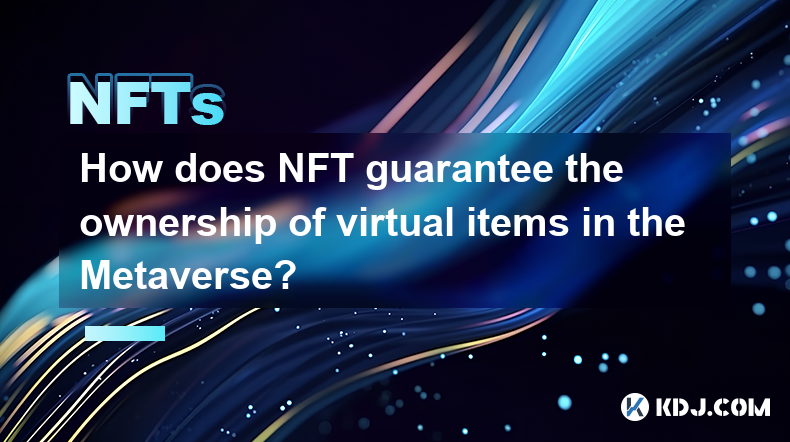
Key Points:
- NFTs utilize blockchain technology to create a verifiable record of ownership.
- This record is immutable and transparent, making it difficult to forge or dispute ownership.
- The unique identifier associated with each NFT acts as a digital certificate of authenticity.
- However, the legal enforceability of NFT ownership remains a complex and evolving area.
- Platform policies and smart contracts play a significant role in defining ownership rights within specific Metaverse environments.
How does NFT guarantee the ownership of virtual items in the Metaverse?
The Metaverse, a persistent, shared, 3D virtual world, relies heavily on digital assets. Non-Fungible Tokens (NFTs) are emerging as a crucial technology for guaranteeing ownership of these virtual items. Unlike fungible tokens like Bitcoin, each NFT is unique and indivisible, representing a specific digital asset. This uniqueness is key to establishing ownership.
NFTs leverage blockchain technology to record ownership. Each transaction involving an NFT is permanently recorded on a distributed ledger, creating an immutable and transparent history of ownership. This makes it incredibly difficult to counterfeit or dispute ownership claims. This public, auditable record is the foundation of NFT's ability to guarantee ownership.
The ownership guarantee provided by an NFT is rooted in its unique identifier. This identifier, often a long string of characters, acts as a digital certificate of authenticity. It is linked to specific metadata describing the virtual item, such as its image, attributes, and even its in-game functionality. This metadata further solidifies the link between the NFT and the virtual asset.
While the blockchain provides a robust record of ownership, the legal enforceability of this ownership remains a grey area. Current laws and regulations surrounding digital assets are still developing. The legal implications of NFT ownership can vary depending on jurisdiction and specific circumstances. This lack of clear legal precedent presents a potential challenge.
The platform hosting the Metaverse environment also plays a crucial role in defining ownership. The platform's terms of service and the smart contracts associated with the NFT govern the rights and limitations of ownership. For instance, a platform might reserve the right to modify or even seize assets under certain conditions.
Smart contracts, self-executing contracts with the terms of the agreement directly written into code, are often used in conjunction with NFTs. These contracts automate the transfer of ownership, ensuring that the transfer is secure and transparent. They can also include clauses outlining usage rights, licensing agreements, and other relevant conditions.
Understanding the specific smart contract associated with an NFT is vital for determining the extent of ownership rights. Different smart contracts might grant different levels of control and usage rights over the associated virtual asset. This can vary widely depending on the creator and the platform.
Furthermore, the underlying blockchain technology itself affects the level of security and trust. Some blockchains are more secure and decentralized than others, impacting the reliability of the ownership record. The choice of blockchain, therefore, influences the strength of the ownership guarantee.
However, even with the robust nature of NFTs and blockchain technology, challenges remain. Issues such as account security and the potential for smart contract vulnerabilities still need to be addressed. Users need to be aware of these risks and take appropriate security measures to protect their digital assets.
The interaction between the NFT, the smart contract, the platform's policies, and the legal framework creates a complex ecosystem governing ownership in the Metaverse. A thorough understanding of each of these elements is crucial for anyone seeking to own and manage virtual assets within these environments.
The concept of "ownership" in the Metaverse also extends beyond simple possession. It might involve access rights, usage rights, and even the ability to modify or resell the virtual item. The specifics of these rights are often determined by the NFT's smart contract and platform policies.
Despite these complexities, NFTs offer a significant step forward in establishing verifiable ownership of virtual items in the Metaverse. They provide a level of security and transparency that was previously unattainable, although challenges and uncertainties still exist within the evolving legal and technological landscape. Continuous development and refinement of these technologies are crucial for further strengthening the guarantee of ownership.
Frequently Asked Questions:
Q: Can someone steal my NFT and its associated virtual item?
A: While the blockchain itself is secure, your personal account security is crucial. Compromised accounts can lead to the theft of NFTs. Use strong passwords, two-factor authentication, and reputable wallets to protect your assets.
Q: What happens if the platform hosting my Metaverse item shuts down?
A: The ownership record remains on the blockchain, but access to the virtual item might be lost. The platform's terms of service should address this scenario, but the outcome isn't guaranteed.
Q: Are all NFTs created equal in terms of ownership guarantees?
A: No. The level of guarantee depends on the platform, the smart contract associated with the NFT, and the security of the underlying blockchain. Some NFTs might offer stronger ownership guarantees than others.
Q: Is NFT ownership legally recognized everywhere?
A: The legal recognition of NFT ownership is still evolving. The legal landscape varies significantly across different jurisdictions, making it crucial to understand the relevant laws in your region.
Q: Can I prove ownership of my NFT in court?
A: While the blockchain record provides strong evidence, its legal admissibility may depend on the specific jurisdiction and the court's acceptance of blockchain technology as evidence. Legal counsel should be sought for such matters.
Disclaimer:info@kdj.com
The information provided is not trading advice. kdj.com does not assume any responsibility for any investments made based on the information provided in this article. Cryptocurrencies are highly volatile and it is highly recommended that you invest with caution after thorough research!
If you believe that the content used on this website infringes your copyright, please contact us immediately (info@kdj.com) and we will delete it promptly.
- We Become One: The Power Of The Shared Musical Experience
- 2025-04-05 19:20:12
- VanEck Has Filed to Launch the First BNB (Binance Coin) ETF in the US
- 2025-04-05 19:20:12
- The Best Crypto to Buy in April 2024: Qubetics, Theta, Render, and Hedera
- 2025-04-05 19:15:12
- Dogecoin (DOGE) and Pepe (PEPE) Have Long Been Fan Favorites
- 2025-04-05 19:15:12
- Russia Is Moving Closer to Selling Bitcoin Confiscated During Criminal Investigations as Officials Work to Create a Legal Structure for Handling Such Digital Assets
- 2025-04-05 19:10:12
- Solana (SOL) ETF Futures Products Struggle to Attract Investors, Bitcoin (BTC) Dominates the Market
- 2025-04-05 19:10:12
Related knowledge
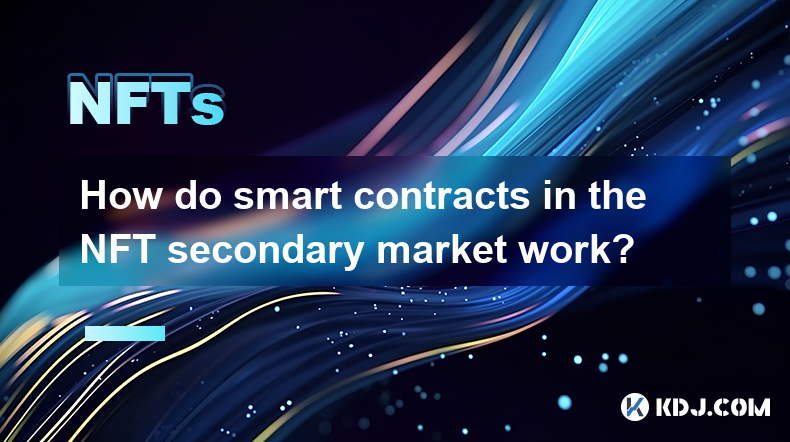
How do smart contracts in the NFT secondary market work?
Apr 03,2025 at 07:14am
Smart contracts play a pivotal role in the NFT secondary market, facilitating seamless transactions and enforcing predefined rules. These self-executing contracts with the terms of the agreement directly written into code are stored on the blockchain. In the context of NFTs, smart contracts automate the buying, selling, and transferring of digital asset...
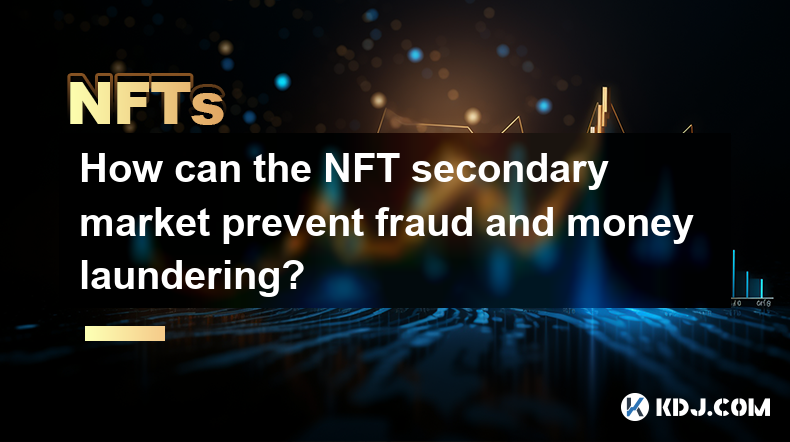
How can the NFT secondary market prevent fraud and money laundering?
Apr 03,2025 at 08:35am
The NFT secondary market has become a thriving hub for digital art and collectibles, but it also faces challenges in preventing fraud and money laundering. To tackle these issues, the market can implement various strategies and technologies to ensure a safer and more transparent trading environment. This article will explore how the NFT secondary market...
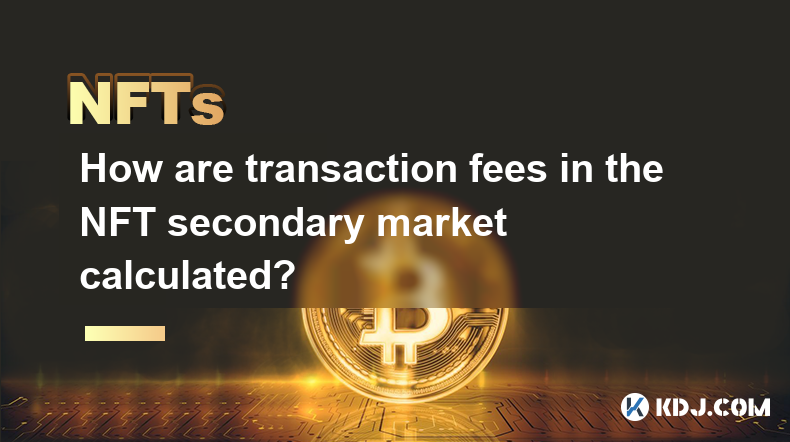
How are transaction fees in the NFT secondary market calculated?
Apr 04,2025 at 05:28am
The calculation of transaction fees in the NFT secondary market is a crucial aspect that both buyers and sellers need to understand. These fees can significantly impact the overall cost of transactions and the profits that sellers can make. In this article, we will delve into the various components that make up these fees, how they are calculated, and w...
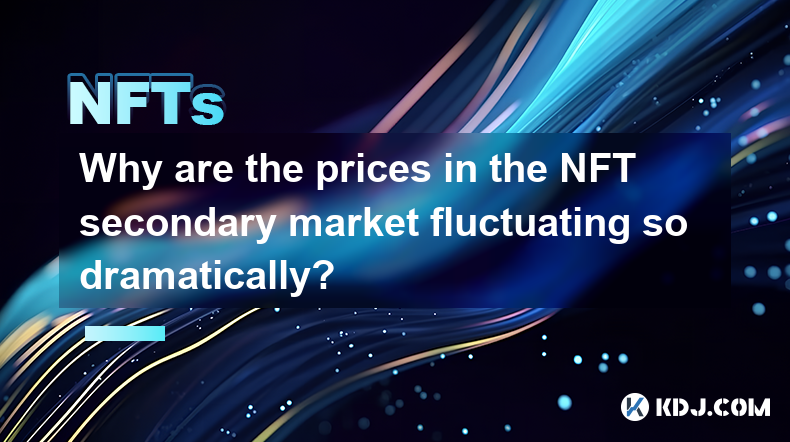
Why are the prices in the NFT secondary market fluctuating so dramatically?
Apr 03,2025 at 10:35pm
The NFT secondary market has been experiencing dramatic price fluctuations, leaving many in the cryptocurrency community puzzled and curious. To understand this phenomenon, it's essential to delve into the factors driving these price movements. From the impact of market sentiment and celebrity endorsements to the role of speculation and the unique natur...
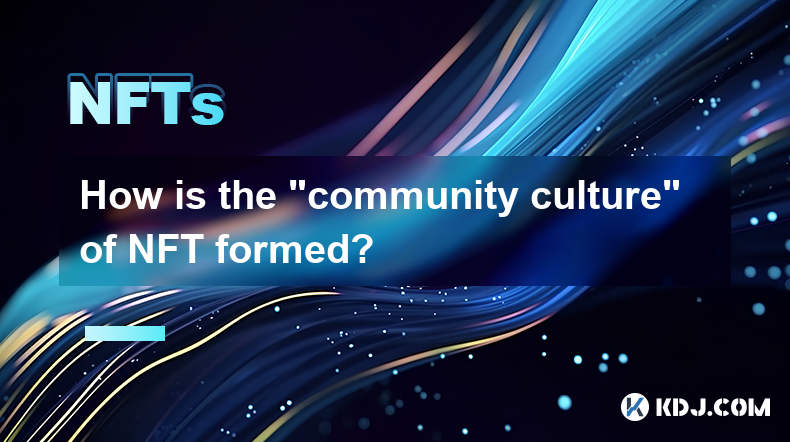
How is the “community culture” of NFT formed?
Apr 03,2025 at 11:07am
The formation of the 'community culture' within the NFT (Non-Fungible Token) space is a fascinating and multi-faceted process. It involves various elements such as shared interests, active engagement, and the creation of a sense of belonging among members. NFT communities often revolve around specific projects or artists, fostering a unique environment ...
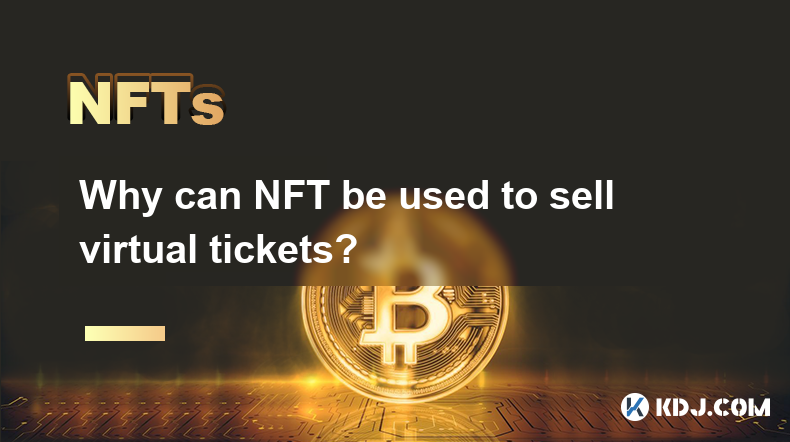
Why can NFT be used to sell virtual tickets?
Apr 03,2025 at 01:35pm
NFTs, or Non-Fungible Tokens, have revolutionized the way we think about digital ownership and value, particularly in the realm of virtual tickets. The primary reason NFTs can be used to sell virtual tickets is their unique nature. Unlike cryptocurrencies such as Bitcoin or Ethereum, which are fungible and can be exchanged on a one-to-one basis, NFTs ar...

How do smart contracts in the NFT secondary market work?
Apr 03,2025 at 07:14am
Smart contracts play a pivotal role in the NFT secondary market, facilitating seamless transactions and enforcing predefined rules. These self-executing contracts with the terms of the agreement directly written into code are stored on the blockchain. In the context of NFTs, smart contracts automate the buying, selling, and transferring of digital asset...

How can the NFT secondary market prevent fraud and money laundering?
Apr 03,2025 at 08:35am
The NFT secondary market has become a thriving hub for digital art and collectibles, but it also faces challenges in preventing fraud and money laundering. To tackle these issues, the market can implement various strategies and technologies to ensure a safer and more transparent trading environment. This article will explore how the NFT secondary market...

How are transaction fees in the NFT secondary market calculated?
Apr 04,2025 at 05:28am
The calculation of transaction fees in the NFT secondary market is a crucial aspect that both buyers and sellers need to understand. These fees can significantly impact the overall cost of transactions and the profits that sellers can make. In this article, we will delve into the various components that make up these fees, how they are calculated, and w...

Why are the prices in the NFT secondary market fluctuating so dramatically?
Apr 03,2025 at 10:35pm
The NFT secondary market has been experiencing dramatic price fluctuations, leaving many in the cryptocurrency community puzzled and curious. To understand this phenomenon, it's essential to delve into the factors driving these price movements. From the impact of market sentiment and celebrity endorsements to the role of speculation and the unique natur...

How is the “community culture” of NFT formed?
Apr 03,2025 at 11:07am
The formation of the 'community culture' within the NFT (Non-Fungible Token) space is a fascinating and multi-faceted process. It involves various elements such as shared interests, active engagement, and the creation of a sense of belonging among members. NFT communities often revolve around specific projects or artists, fostering a unique environment ...

Why can NFT be used to sell virtual tickets?
Apr 03,2025 at 01:35pm
NFTs, or Non-Fungible Tokens, have revolutionized the way we think about digital ownership and value, particularly in the realm of virtual tickets. The primary reason NFTs can be used to sell virtual tickets is their unique nature. Unlike cryptocurrencies such as Bitcoin or Ethereum, which are fungible and can be exchanged on a one-to-one basis, NFTs ar...
See all articles



















































































